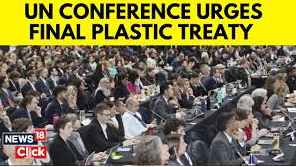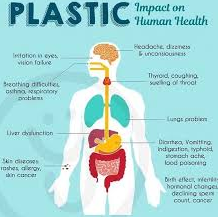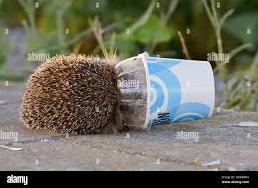Rev Canon Trevor Sargent is one of the Church of Ireland representatives on the ECI committee.
Plastic is terribly handy. When one is batch cooking at home, plastic lunch boxes are easily filled and stacked in the freezer. In hospitals, all that plastic medical equipment helps patients, nurses and doctors alike. But that is not the whole story.
The trouble is that plastic has become so handy that it is often used only once and thrown away. Everything from food packaging, to silage wrapping, to plastic cutlery, etc, plastic is ubiquitous. However, unlike compost which breaks down, plastic breaks up! This means that it continues fragmenting into micro plastic pieces until these near invisible bits get into food, blood streams and even into our brains.
CAN’T WE JUST RECYCLE PLASTICS MORE?
Before we take some comfort in the efforts we make to send plastic waste for recycling, bear in mind that ‘recycling’ can include burning plastic in an incinerator, (sometimes called a ‘waste to energy’ approach). Less than 10% of plastics are estimated to go for recycling.
Meanwhile, production of plastics is soaring worldwide, with “the annual production of plastics … rocketing from 234 million tonnes (Mt) in 2000 to 460 Mt in 2019,” according to the Organization for Economic Co-operation and Development.
WILL THE COMMON GOOD TRIUMPH OVER THE FOSSIL FUEL LOBBYISTS?
For ten days, (August 5th – 14th ) 175 countries have been meeting in Geneva at a U.N. Plastics Conference to address the accelerating growth in plastics pollution. The objective is to agree a global plastics treaty which would be an international, legally binding agreement, setting targets that nations would need to meet to end the 11m tonnes of plastic pollution ending up in the world’s oceans every year. Major plastic producing countries like Saudi Arabia, Iran, the USA and China are resisting efforts to agree a global plastics treaty.

HEALTH RESEARCH IS SHOWING HOW PLASTICS CAN BE HAZARDOUS
More than 16,000 chemicals are used in plastics, including fillers, dyes, flame retardants and stabilisers. Many plastic chemicals were linked to health effects at all stages of human life, a recent report in the British medical journal, The Lancet*, has said, but there was a general lack of transparency in the industry about which chemicals were present in plastics.
The analysis found that foetuses, infants and young children were highly susceptible to the harms associated with plastics, with exposure associated with increased risks of miscarriage, premature and stillbirth, birth defects, impaired lung growth, childhood cancer and fertility problems later in life.
Micro- and nano-plastic particles have been found in blood, brains, breast milk, placentas, semen and bone marrow. These have been linked to strokes and heart attacks and the researchers say a precautionary approach is needed.
Plastic is often seen as a cheap material but this doesn’t include the cost of health damages. One estimate of the health damage from just three plastic chemicals – PBDE, BPA and DEHP – in 38 countries was $1.5tn a year.

PLASTICS ARE GIVING THE WIDER ENVIRONMENT A HEADACHE TOO!
Plastics are also driving the climate crisis by releasing the equivalent of 2bn tonnes of CO2 a year – more than the emissions of Russia, the world’s fourth biggest polluter. More than half of unmanaged plastic waste is burned in the open air, further increasing dirty air, the Lancet report noted. The effects of discarded plastic items on wildlife is also catastrophic, such as this entrapped hedgehog pictured.

CAN WE WEAN OURSELVES OFF SUCH A RELIANCE OF PLASTIC?
We could all do more to refuse single-use plastics in day to day life. Beyond that, companies such as Lush, the cosmetics company, have shown that deliberately not using plastic can be good for business.
More challenging is the globalised food system. As transportation costs rise and the need to avoid plastic packaging grows, it will be important to support more localised food supply businesses. A global treaty to phase out plastic packaging will drive these changes with legally binding targets.
ATTENTION TO PAUL’S MESSAGE IN COLOSSIANS WOULD HELP US ALL!
For a Christian, in the words of St Paul, ‘’Jesus Christ is before all things, and in him all things hold together” (Colossians 1: 17). The implication of this is that without Jesus, all things fall apart. God has entrusted humanity with creation’s care. When we fail to put Jesus at the centre of our thoughts and behaviour, is it any wonder that environmental integrity falls apart, and that our personal health suffers as a consequence? God made a world where nothing is wasted. It dishonours him if we are careless with what he has made. Father, forgive us, for the damage we are doing to your world, a world we have borrowed from our children and grandchildren.
REFERENCES:
https://www.thelancet.com/journals/lancet/article/PIIS0140-6736(25)01447-3/abstract
https://guardian.pressreader.com/article/281698324114105
